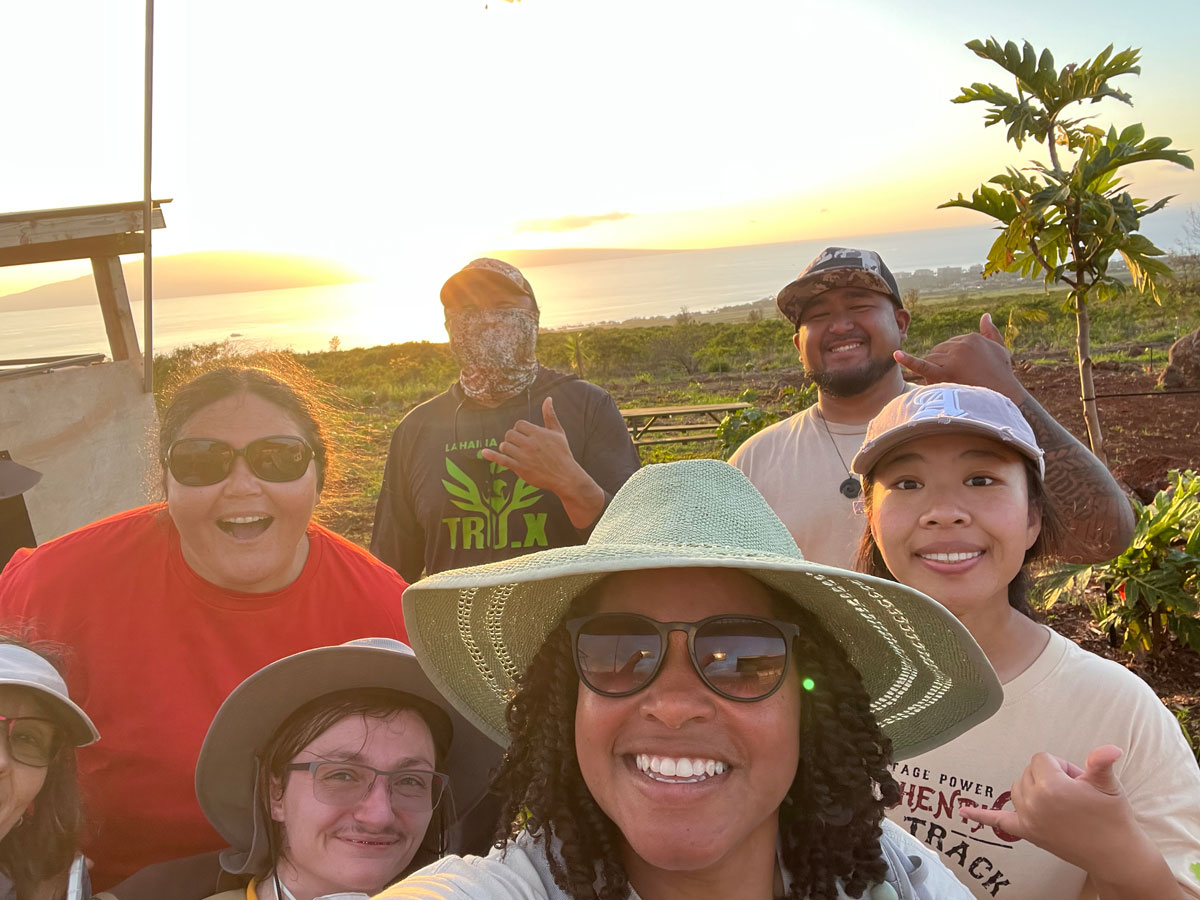UW Bothell’s Melanie Malone turns soil science into social change with hands-on classes
Associate professor Melanie Malone teaches hands-on, field-based and community-centered science classes to better engage her students.

Melanie Malone, center, and Simon Richard, ’20, bottom left, train a local team in soil-contamination testing on Maui. Courtesy Melanie Malone.
At the intersection of soil science, environmental justice and community engagement, Melanie Malone, associate professor in the School of Interdisciplinary Arts & Sciences at UW Bothell, is leading her students in field-based learning and community-centered projects, inspiring the next generation of change-makers.
Since joining UW Bothell in 2018, Malone has brought students into the field to explore pollution in urban gardens, contaminated sites in regional communities and—in the past year—the fire-ravaged lands of Lahaina, Hawaii. Along the way, she has received multiple regional and national grants and awards to support her work.
Malone’s teaching philosophy is hands-on and rooted in equity. “My primary goals are to explain how policy translates into on-the-ground practice, and to help students understand how things work,” she says.
Her classes often include real-world environmental technologies, including flying drones and using professional tools to conduct field sampling and study soil and water contamination.
But she’s just as passionate about how students learn. Believing that teaching is one of the best ways to master a subject, Malone often invites her students to teach each other in class. “It enables them to identify holes in their own understanding while sharing information with others,” she says, “and it encourages both creative and critical thinking.”
Students in Malone’s labs conduct environmental research in communities affected by contamination. They collect soil and water samples, meet with community partners and collaborate on restorative solutions to apply science in a way that’s immediate, personal and transformative.
“A lot of my students aren’t environmental science majors,” Malone says, “but once they see the impact of their work, it changes what they think is possible.”